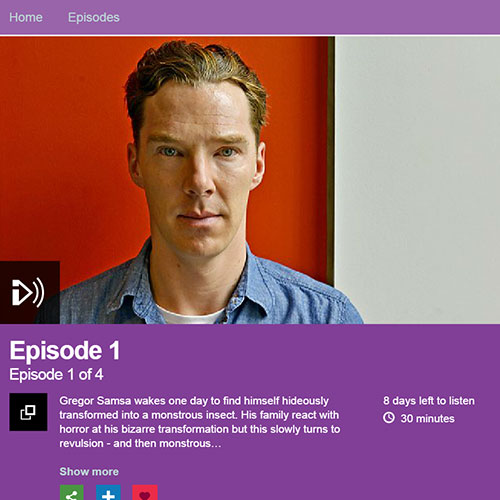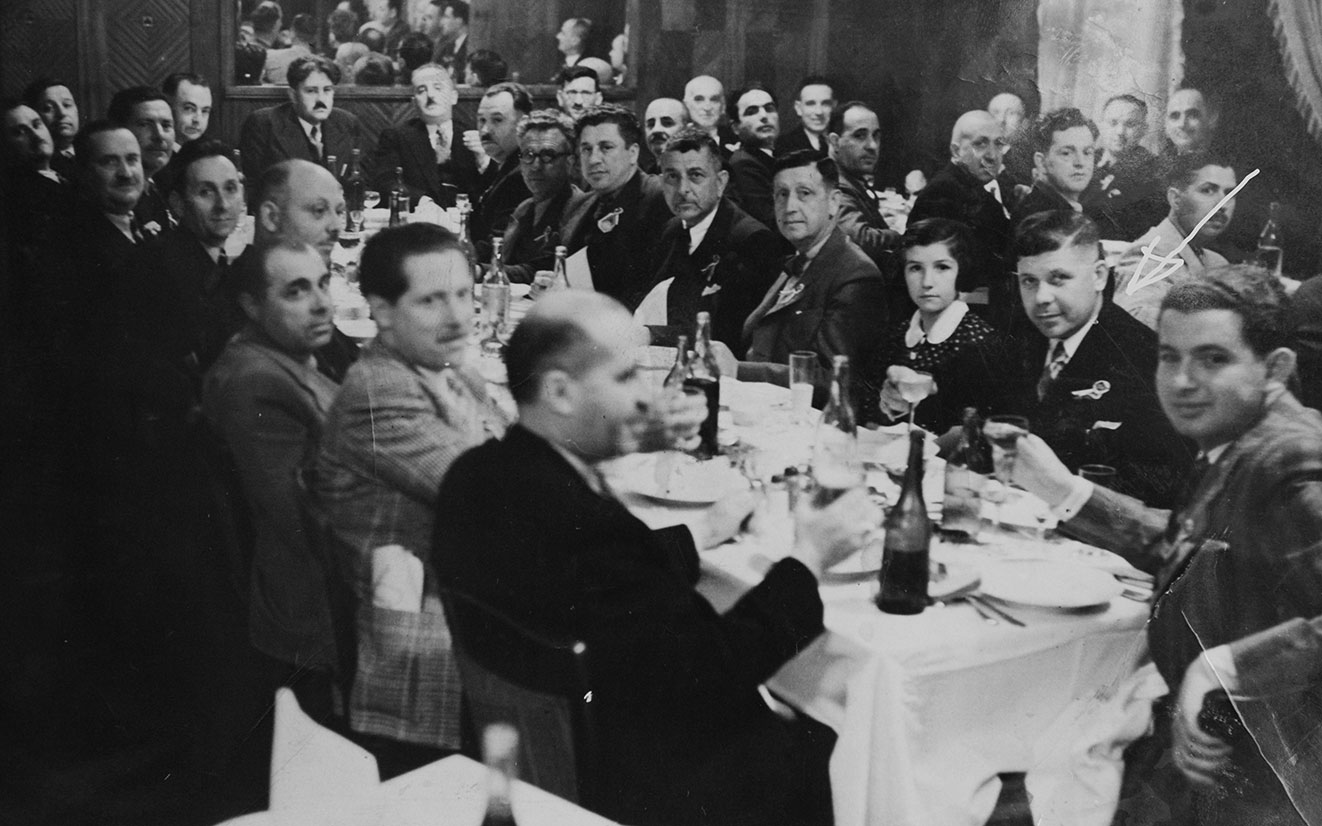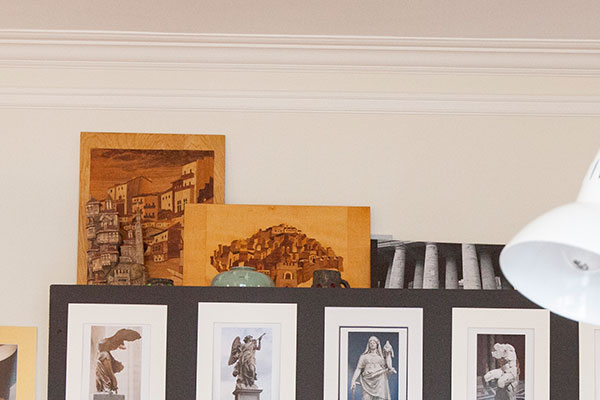Uncategorized on Purpose
The Myth of Sisyphus by Albert Camus /
The gist of The Myth of Sisyphus on wikipedia: http://en.wikipedia.org/wiki/The_Myth_of_Sisyphus
The entire essay:
IS LIFE WORTH LIVING? /
O CT OB ER, 1 8 9 5. IS LIFE WORTH LIVING? Read more here.
WHEN Mr. Mallock's book with this title appeared some fifteen years ago, the jocose answer that " it depends on the liver" had great currency in the newspapers. The answer that I propose to give today cannot be jocose. In the words of one of Shakespeare's prologues, " I come no more to make you laugh; things now that bear a weighty and a serious brow, sad, high, and working, full of state and woe,"
Bertrand Russell discusses mankind's future & philosophy. /
At the 9:15 mark, the interviewer asks about the “practical use of your sort of philosophy to a man who wants to know how to conduct himself”. Also, a simple answer form Bertrand Russell on what philosophy is: Science is what we know, Philosophy is what we don't know..
A Philosopher and KUNG FU PANDA /
Slavoj Zizek on how Belief Functions Today. https://youtu.be/xCD3hg6OEQw
Grandpa passed away 29 years ago today, he was a painter, a businessman, a family man who kept extended family together /
My grandparents' house was always full of guests - friends, relatives, immediate and extended family were always welcomed, fed and entertained.
My grandmother was a perfect hostess and homemaker and baked the most delicious desserts from a leafy book of secret recipes.
Here is my grandfather sporting a mustache, to the right of the little girl who is actually my aunt whom he had to take care of but couldn't find a babysitter so she ended up at the party - Union Club, Sofia 1938.
A couple of grandpa's paintings always travel with me. Usually they are proudly displayed and occasionally hide behind clutter when I work on the walls. Here are some pics of his Intarsia work - in my studio. Sorry grandpa, unlike you I get sloppy and not always properly hang them.
Quote of the Day.. not really about a horse, is it? /
So what of this horse, then, that actually held opinions, and was sceptical about things? Unusual behaviour for a horse, wasn't it? An unusual horse perhaps? No. Although it was certainly a handsome and well-built example of its species, it was none the less a perfectly ordinary horse, such as convergent evolution has produced in many of the places that life is to be found. They have always understood a great deal more than they let on. It is difficult to be sat on all day, every day, by some other creature, without forming an opinion about them. On the other hand, it is perfectly possible to sit all day, every day, on top of another creature and not have the slightest thought about them whatsoever.
- Dirk Gently's Holistic Detective Agency/ Long Dark Teatime of the Soul By Douglas Adams
To Fly or Not to Fly - The Life of Birds. Another great BBC series narrated by David Attenborough /
[embed width="640" height="480"]https://www.youtube.com/watch?v=u3eqSevtuKU&list=ELaYy3a60ZYJo[/embed]
It all jiggles - Richard Feynman on Fire /
The most important thing you will ever have /
When I open a newspaper it is as if we never went through the Enlightenment. It is full of guided content and regurgitated narratives of sex, guns, and money. Have you ever wondered how many girlfriends Kant had, or Plato? Did you ever wonder how much money Van Gogh had? None.
No one ever tells you that the most important thing that you own, apart from your good health and the proper function of all your organs, is your ability to think independently. And the second thing is your ability to express and argue your opinion in public. These were the two Dreams of the Enlightenment.
In his Essay What Is Enlightenment? Kant defines Enlightenment as "man's emergence from his self-imposed nonage. Nonage is the inability to use one's own understanding without another's guidance." For his second dream he says "the public use of one's reason must be free at all times, and this alone can bring enlightenment to mankind."
Once you have traded your goods and services, obtained lodging and food, secured your home, sturdied your frame and medicated your body, feel free to use the greatest gift you may ever have, free thought.
Edge.org's annual question WHAT DO YOU THINK ABOUT MACHINES THAT THINK? /
A beautiful symphony of thought is the Answers to Edge.org's Annual Question - WHAT DO YOU THINK ABOUT MACHINES THAT THINK? And my favorite excerpts.
George Church Author, Regenesis; Professor, Harvard University; Director, Personal Genome Project
I am a machine that thinks, made of atoms—a perfect quantum simulation of a many-body problem—a 1029 body problem. I, robot, am dangerously capable of self-reprogramming and preventing others from cutting off my power supply. (this cracked me up - don't come near me when i am hungry) We human machines extend our abilities via symbiosis with other machines—expanding our vision to span wavelengths beyond the mere few nanometers visible to our ancestors, out to the full electromagnetic range from picometer to megameter. We hurl 370 kg hunks of our hive past the sun at 252,792 km/hr. We extend our memory and math by a billion-fold with our silicon prostheses. Yet our bio-brains are a thousand-fold more energy efficient than our inorganic-brains at tasks where we have common ground (like facial recognition and language translation) and infinitely better for tasks of, as yet, unknown difficulty, like E. instein’s Annus Mirabilis papers, or out-of-the-box inventions impacting future centuries. As Moore’s Law heads from 20-nm transistor lithography down to 0.1 nm atomic precision and from 2D to 3D circuits, we may downplay reinventing and simulating our biomolecular-brains and switch to engineering them.
James J. O'Donnell Classical Scholar, University Professor, Georgetown University
3. Can artificial mechanisms be constructed to play the part in gathering information and making decisions that human beings now do? Sure, they already do. The ones that control the fuel injection on my car are a lot smarter than I am. I think I'd do a lousy job of that.
there is a huge difference between fighting for an idea and fighting for a nickel /
Youtube cant' tell the difference but I can. I had been listening to "The Power of Myth" on my phone and when an excerpt from Martin Luther King's famous speech came on I went to youtube to look for a longer version.
Here is the most famous bit:
After the video ended I let youtube go on autopilot onto the next video. And next came an excerpt from The Pursuit of Happyness starring Will Smith.
When at first glance these videos may have something in common - they actually cannot be any more different. One is about the power of an idea, the kind of dough humanity keeps for great holidays. And the other is the fight for the nickel, the daily grind. In the daily grind the pursuit of the stockbroker, the street sweeper are the same, the head is down and the clock is ticking.
And here is another take on pursuit, the relentless pursuit of a goal, brought to you by Arnold:
Carl Sagan - Pale Blue Dot /
Pale Blue Dot by Carl Sagan: “Look again at that dot. That's here. That's home. That's us. On it everyone you love, everyone you know, everyone you ever heard of, every human being who ever was, lived out their lives. The aggregate of our joy and suffering, thousands of confident religions, ideologies, and economic doctrines, every hunter and forager, every hero and coward, every creator and destroyer of civilization, every king and peasant, every young couple in love, every mother and father, hopeful child, inventor and explorer, every teacher of morals, every corrupt politician, every "superstar," every "supreme leader," every saint and sinner in the history of our species lived there - on a mote of dust suspended in a sunbeam.
The Earth is a very small stage in a vast cosmic arena. Think of the endless cruelties visited by the inhabitants of one corner of this pixel on the scarcely distinguishable inhabitants of some other corner, how frequent their misunderstandings, how eager they are to kill one another, how fervent their hatreds. Think of the rivers of blood spilled by all those generals and emperors so that, in glory and triumph, they could become the momentary masters of a fraction of a dot.
Our posturings, our imagined self-importance, the delusion that we have some privileged position in the Universe, are challenged by this point of pale light. Our planet is a lonely speck in the great enveloping cosmic dark. In our obscurity, in all this vastness, there is no hint that help will come from elsewhere to save us from ourselves.
The Earth is the only world known so far to harbor life. There is nowhere else, at least in the near future, to which our species could migrate. Visit, yes. Settle, not yet. Like it or not, for the moment the Earth is where we make our stand.
It has been said that astronomy is a humbling and character-building experience. There is perhaps no better demonstration of the folly of human conceits than this distant image of our tiny world. To me, it underscores our responsibility to deal more kindly with one another, and to preserve and cherish the pale blue dot, the only home we've ever known.” ― Carl Sagan, Pale Blue Dot: A Vision of the Human Future in Space
The pale Blue dot as imaged by Voyager:

Narrated y Carl Sagan on youtube:
BBC animations on the History of Ideas /
A History of Ideas is a BBC Radio 4 program of the same name. BBC created animated shorts illustrating different ideas from the history of thought and narrated by Gillian Anderson. Wondering about questions like "Why are things beautiful?" - philosophers and thinkers have already been wondering the same thing, for couple of millennia. Here are some of my favorite animations from their collection. I have transcribed the first one but when i get a chance i will do the others as well.
Diotima’s Ladder
"In Plato’s dialog the Symposium Socrates recalls Diotama’s teaching that a desire for one beautiful man’s body is just the first rung in a ladder that leads up to the appreciation of the form of Beauty. And so is merely a means to the higher end of appreciating the Abstract Idea.
This is Diotama’s teaching. To learn about beauty first recognize the physical beauty of your desired lover. Then, if you are rational, you’ll appreciate not just the individual loved one’s beauty, but also the physical beauty of others too. It would be absurd to only see beauty in one individual since bodies are so similar. From this the next step up the ladder is to see the beauty that lies beyond appearances. The beauty in wisdom and knowledge, the beauty of beautiful minds even if they happen to dwell in bodies which aren’t particularly beautiful. The last step is to come to recognize the form of beauty itself, the Abstract Pure general notion of Beauty. This form of beauty also carries with it moral qualities of Goodness. So if you take the first step of falling for the body of a beautiful youth, Diotima thinks you can progress from this to a more cerebral appreciation of Universal Beauty. Lust is on the bottom rung of the ladder and morality at the top. If you are prepared to make the ascent."
Feminine Beauty: A social construct?
Edmund Burke on the sublime
A link to the whole collection on the BBC website: http://www.bbc.co.uk/programmes/articles/3vVjcY47k2p5Wsnj3ZFHV5W/a-history-of-ideas
The Relativity of Wrong by Isaac Asimov, or, nitpicking on Socrates /
My brain gets poisoned by news and chewing through recent events with the teeth of media. So I often find myself in the company of dead people. The thoughts of man and women from the past, with the perspective of the occurred future. Often find solace in science fiction, with the freaks and creatures that inhabit strange worlds. I recently read a science fiction book written in 1964 by a Czechoslovakian science fiction author Ludvík Souček. It was a throwback to Jules Verne but naive, from a 21st century points of view, in its basking in communist propaganda. Yet I didn't put the book down as it walked me through a time when selfies from space weren't very common and humanity was not yet a space faring civilization, yet on the verge of it and dreaming of what is out in the void.
What was I saying - I already forgot why I began this page to begin with, but what Isaac Asimov is saying in his essay is that there is a critical mass to being wrong. Sometimes a difference between a 0 and 0.00000000000003 makes all the difference.
Read the entire essay here - The Relativity of Wrong by Isaac Asimov.
An excerpt where Asimov literally nitpicks on Socrates but is not entirely wrong in doing that:
First, let me dispose of Socrates because I am sick and tired of this pretense that knowing you know nothing is a mark of wisdom. No one knows nothing. In a matter of days, babies learn to recognize their mothers.
Socrates would agree, of course, and explain that knowledge of trivia is not what he means. He means that in the great abstractions over which human beings debate, one should start without preconceived, unexamined notions, and that he alone knew this. (What an enormously arrogant claim!)
In his discussions of such matters as "What is justice?" or "What is virtue?" he took the attitude that he knew nothing and had to be instructed by others. (This is called "Socratic irony," for Socrates knew very well that he knew a great deal more than the poor souls he was picking on.) By pretending ignorance, Socrates lured others into propounding their views on such abstractions. Socrates then, by a series of ignorant-sounding questions, forced the others into such a mélange of self-contradictions that they would finally break down and admit they didn't know what they were talking about.
It is the mark of the marvelous toleration of the Athenians that they let this continue for decades and that it wasn't till Socrates turned seventy that they broke down and forced him to drink poison.
Tomorrow, and tomorrow. Ian McKellen analyzes Macbeth speech /
Analysis by Ian McKellen of a Macbeth speech. It is not the "music" of the verse but rather the "sense", its meaning that should be expressed. An actor should "think" rather than "act" the verse. In his own words: "If this workshop has done anything, I hope it scotched the ... wrong belief that Shakespeare’s verse is music and all you have to find out is the tune and everything will be all right. Rather, I believe that if you look after the sense, the sounds will look after themselves. "
One of the greatest things of 21st century is the ability to learn from other people's process. I really am not a big fan of celebrity worship. It just happens that the thoughts of more productive people are more readily accessible. It is not necessary that their thoughts are more valid. I always make a point to have not just understanding, but critical understanding of what surrounds me. So, even if it's McKellen, take it with a grain of salt and let it enhance your own understanding, rather than replace it.
The relevant excerpt from Shakespeare's Macbeth:
MACBETH
She should have died hereafter; There would have been a time for such a word. To-morrow, and to-morrow, and to-morrow, Creeps in this petty pace from day to day To the last syllable of recorded time, And all our yesterdays have lighted fools The way to dusty death. Out, out, brief candle! Life's but a walking shadow, a poor player That struts and frets his hour upon the stage And then is heard no more: it is a tale Told by an idiot, full of sound and fury, Signifying nothing.
Relevant excerpt from Extras on Sir Ian's Method ( I so much love Extras by the way, and although I gave up television about 6 years ago it is as if I've never left the good stuff behind wink-wink netflix wink-wink youtube ):
Hoe to do archery properly. Actually, how to do anything properly /
The perfect example of practice makes perfect and committing to a craft. Welcome to Archery. It has less to do with the actual craft and more to do with the "eternal values of centering our lives" ( line in quotes by Joseph Campbell, I am just using it frivolously and out of context because this video is not about archery, it is about a level of comprehension and awareness ).






